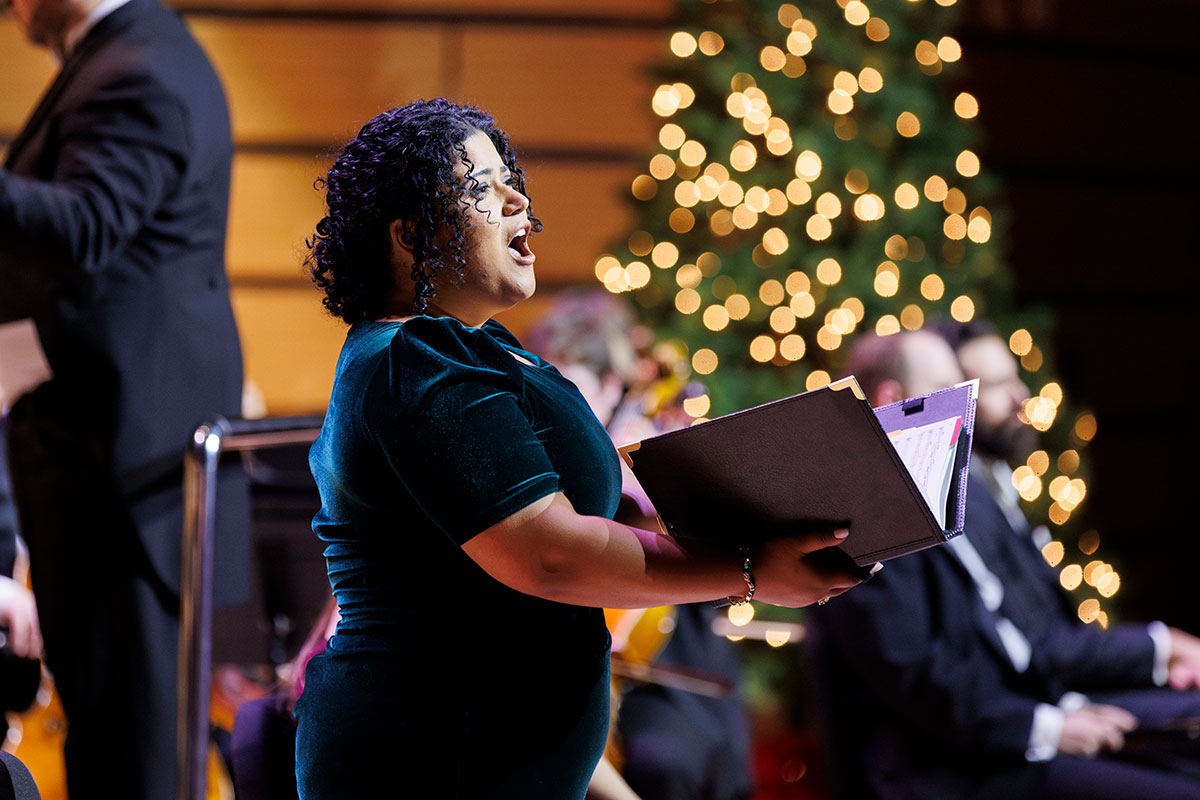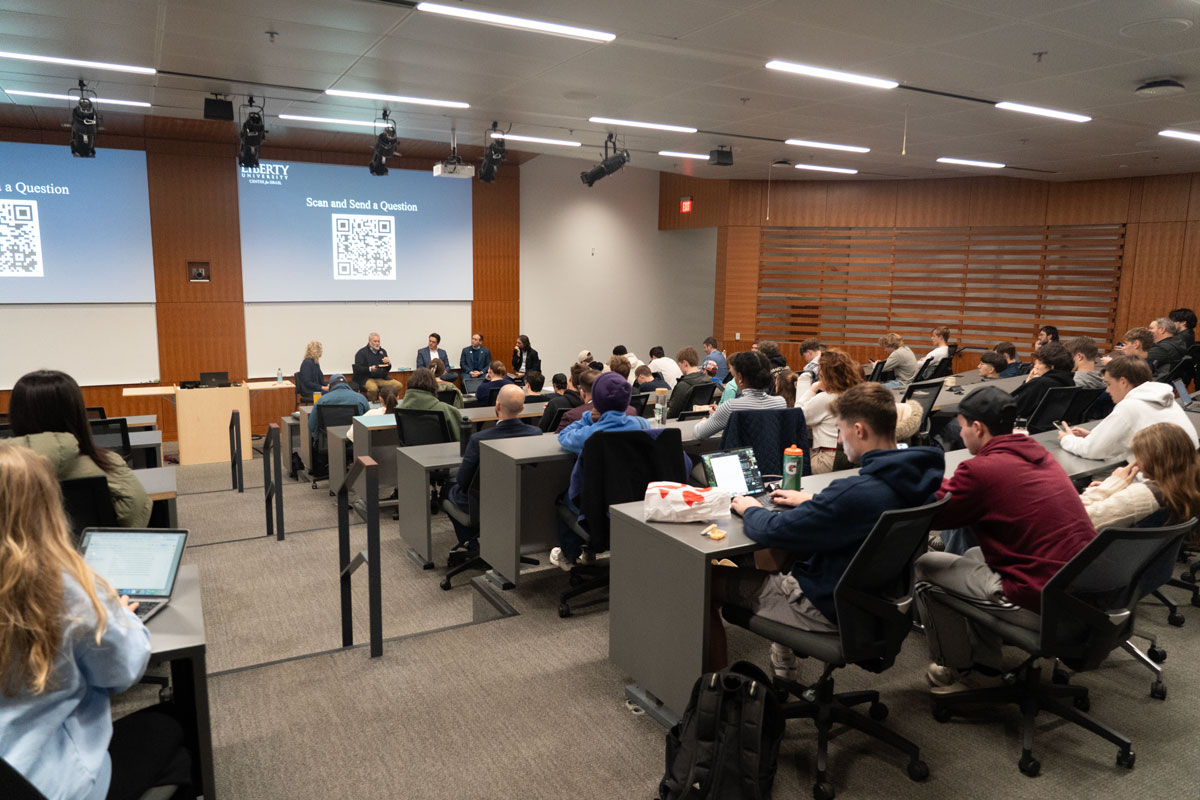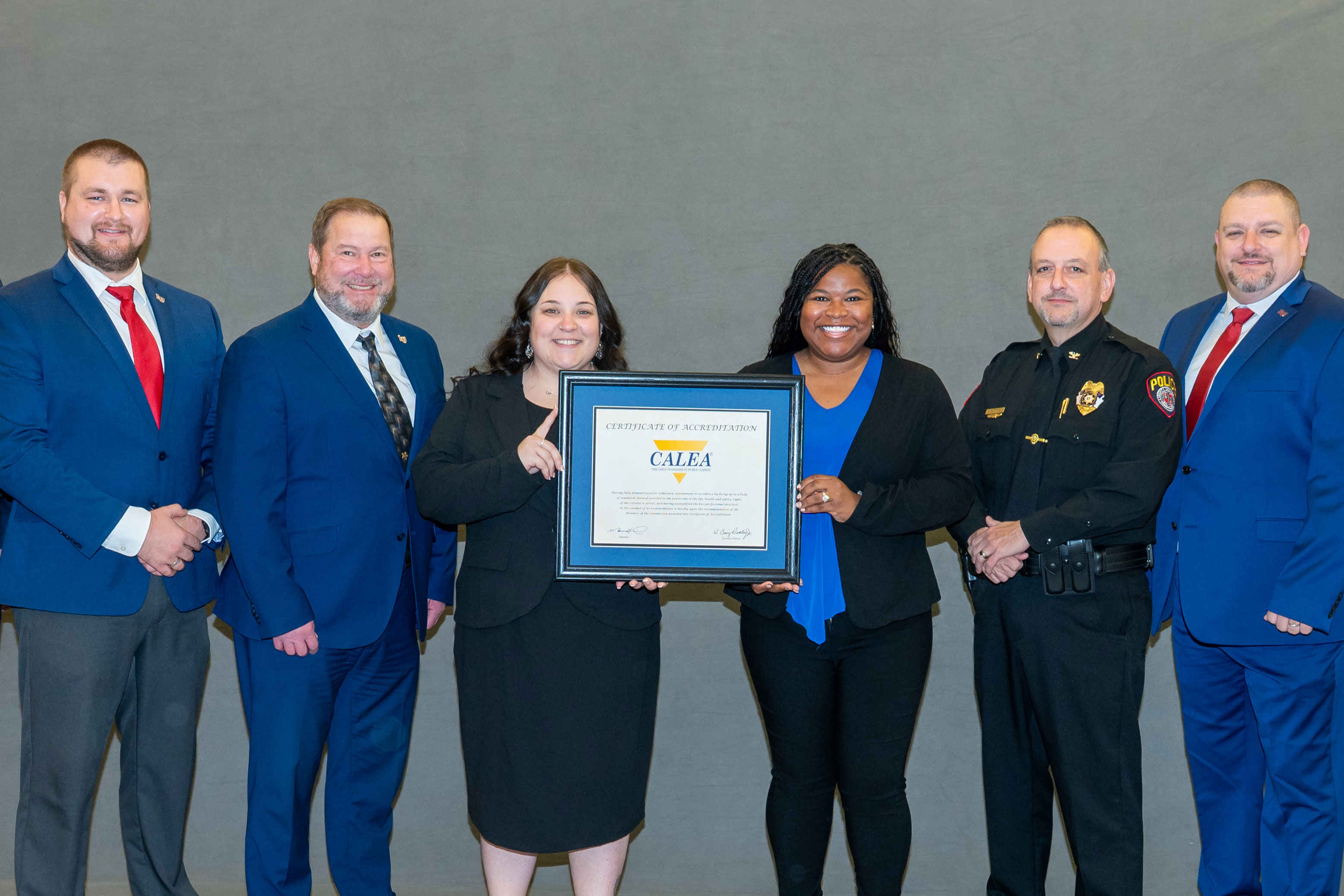LU ONE hosts Chauncey Spencer II and his traveling museum to tell stories of black pioneers in aviation
October 27, 2023 : By Bryson Gordon - Office of Communications & Public Engagement
On Monday, Liberty University’s newly renamed LU ONE office hosted Chauncey Spencer II, son of famed aviator Chauncey Spencer Sr., a founding member of the National Airmen’s Association who made it possible for blacks to be trained as Tuskegee Airmen in World War II.
The younger Spencer now tours the country with a traveling museum paying homage to the black pioneers of aviation. The museum was set up in front of the Freedom Tower and was available for tours on Monday and Tuesday.
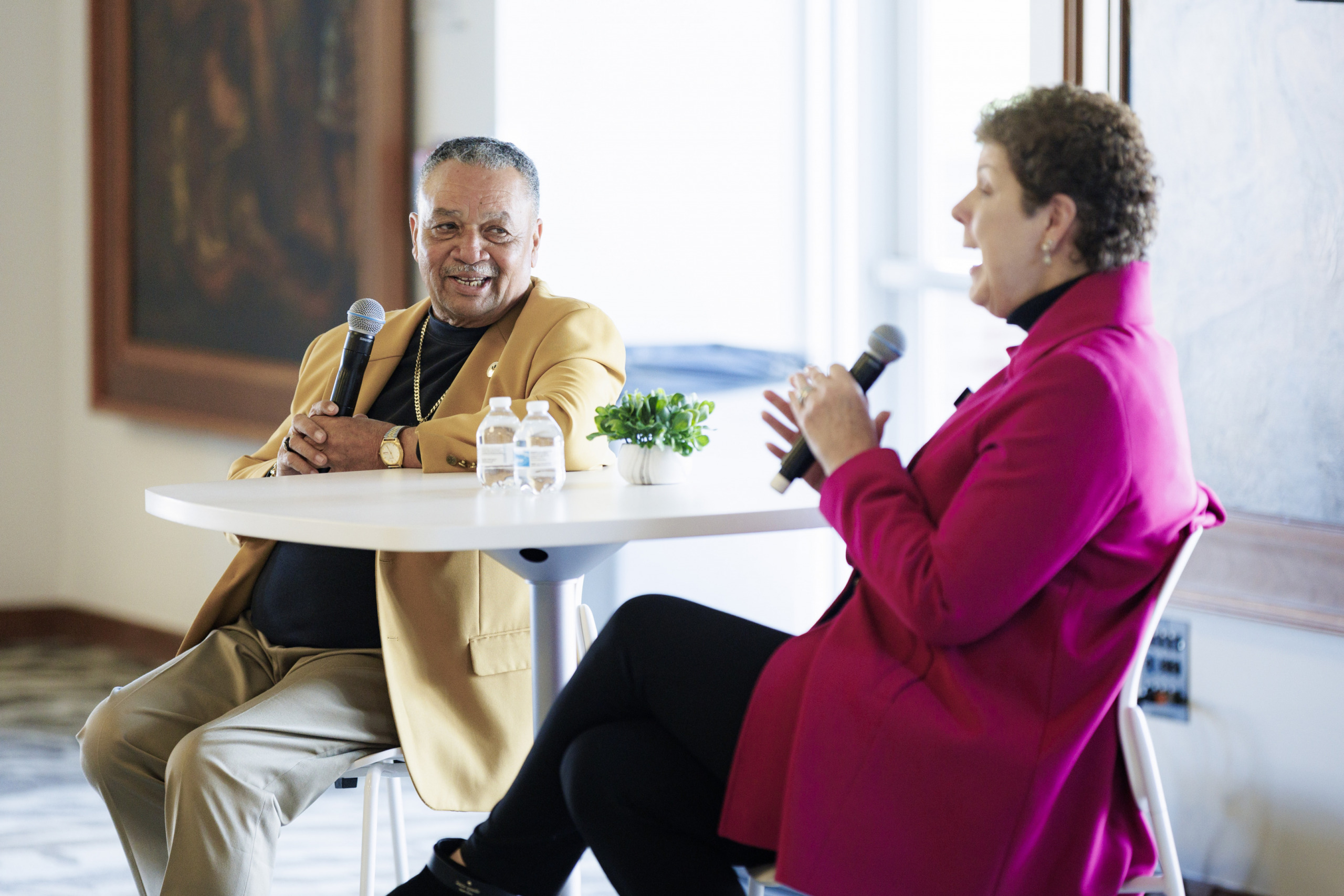
In a fireside chat with LU ONE on Monday, Spencer discussed how his father played an integral role in influencing then-Sen. Harry S. Truman to establish funding for the training of black pilots at Tuskegee Institute during World War II, as well as his family’s deep ties in Lynchburg. Not only is Spencer’s father a famous Lynchburg native, but his grandmother, Anne Spencer, was a famed poet of the Harlem Renaissance who made her home on Pierce Street, where she would occasionally host other important figures of the Civil Rights era, including Martin Luther King Jr., George Washington Carver, W. E. B. Du Bois, and others.
Among the many stories Spencer told during the event was one about how his father fell in love with aviation from a young age, starting with when he saw his first plane from that same home on Pierce Street.
“My father was 11 years old and his nickname was ‘Woogie,’” Spencer said. “My grandmother was upstairs and said, ‘Woogie, Woogie, look up,’ and my father, who was in the basement … came running up thinking it’s something wrong with my grandmother, but he looked up and saw his first airplane at 11 years old.”
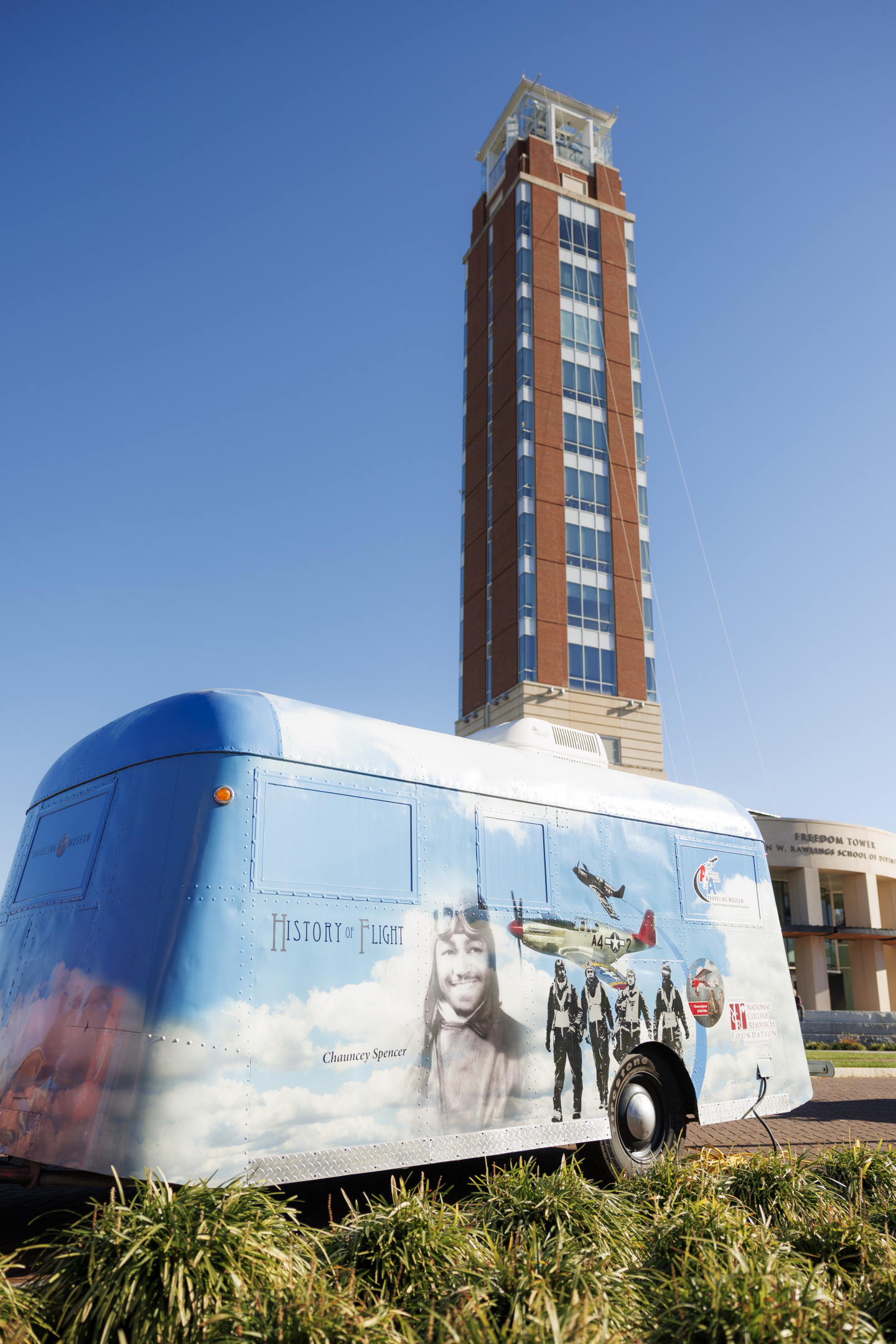
From there, Spencer said his father was “bitten by the aviation bug,” doing everything he could to become a pilot. He even told the story of how he would outfit a wagon and ride it down the hilly streets of Lynchburg trying to get enough thrust to lift off the ground.
At 16, when many people would pursue a driver’s license, Spencer Sr. went to the airport in Lynchburg with his father, hoping to get into flight lessons at a young age. The experience was an important moment in Spencer’s push for equality.
“My grandfather said to the manager, ‘My son would like to take flight lessons,’ and my father told me that the manager didn’t even look up and said, ‘We don’t teach colored people to fly; they don’t have the intelligence.’”
“That hurt my father,” Spencer said. “But it didn’t stop him.”
After graduating college, Spencer was still unable to take flight lessons in Lynchburg, so a close family friend, Oscar De Priest, the first black Congressman since Reconstruction, suggested that Spencer move to Chicago for lessons.
Years after moving to Chicago, it was a multi-city flight tour with a friend, Dale White, that garnered notoriety for the two pilots, and it eventually landed them time with Sen. Truman, who pushed the U.S. Congress to allow black people into the World War II Civilian Pilot Training Program. This paved the way for students of the Tuskegee Institute to be trained for the Army Air Corps, which eventually led to the formation of the group that would become the Tuskegee Airmen.
To carry on the legacy of his father, along with all of the other black pioneers in aviation, Spencer II visits schools, museums, and major companies such as Ford Motor Group and General Motors with his traveling collection of artifacts and portraits.
Spencer II also discussed his father’s relationship with Liberty founder Dr. Jerry Falwell, who he said was so close with the family that he attended his own (Spencer II’s) wedding in Detroit.
Although the two “did not think alike politically,” Spencer II said, Falwell made a personal donation to his father’s campaign for Lynchburg City Council, a sign of mutual respect between two pillars in the Lynchburg community.
“Every year we would get a Christmas card from the Falwells and it would have a picture of the whole family,” he said. “Every year, the Spencer family would send one back to the Falwells.”
“It’s an honor to be here at Jerry Falwell’s school,” Spencer II added.
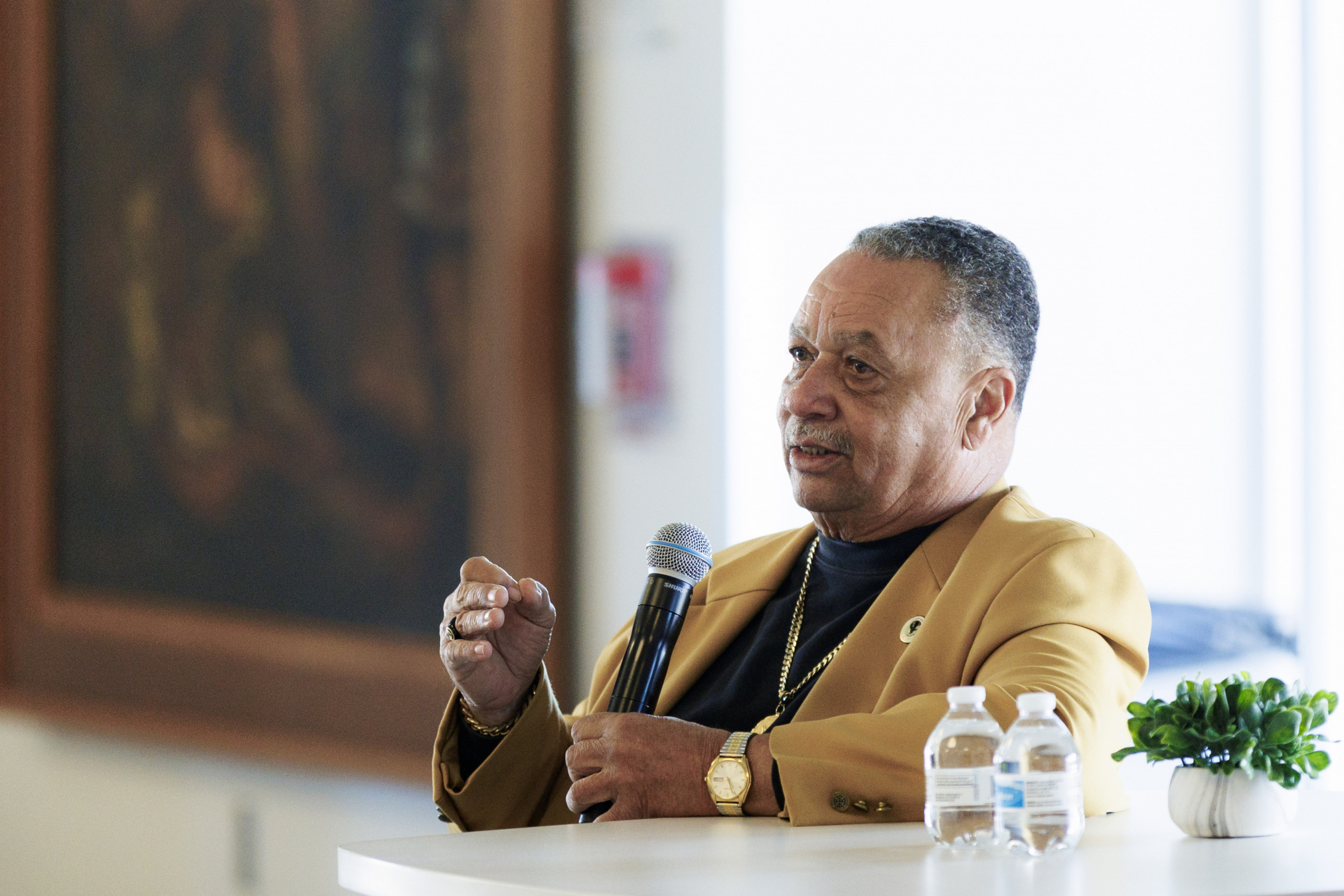
Presenting Spencer Sr.’s story of helping form the Tuskegee Airmen is one that played an important part in shaping the outcome of World War II, and it’s a story LU ONE was excited to offer students through the fireside chat and traveling museum.
“The Tuskegee Airmen made a major contribution in World War II and helped us win that war. The museum just tells that story. It’s a great story of the American Spirit,” said Matt Summers, LU ONE’s director of diversity, recruitment, and engagement.
Similar opportunities for cultural enrichment are a goal of the LU ONE office, according to Melissa Harris, the department’s director of communications and branding,
“LU ONE will continue to bring quality programming on campus that provides the opportunity for cultural exposure and explores the richness of our unity in Christ,” Harris said.
LU ONE aims to foster biblical unity among the student body through its three divisions: the Office of Equity & Inclusion (OEI); the Office of Disability Accommodation Support (ODAS), which coordinates academic support for Liberty University students with disabilities; and the International Student Center (ISC), which supports Liberty’s international students and promotes international culture through on-campus workshops and events. To learn more about LU ONE and stay up to date on upcoming events, visit the office’s website.
